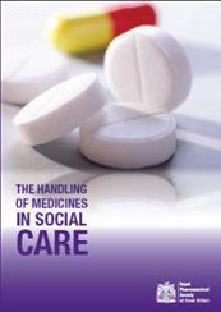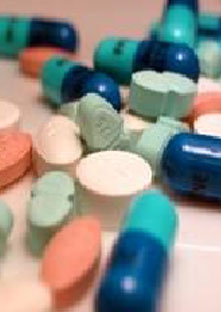

Know your medicines
Know the name, colour, shape, dosage form (table or capsule), imprinted symbols or container of the medicines.
Take your medicines as instructed by doctor.
Follow your doctor’s instructions. Have your doctor or pharmacist to write down specific instructions if you are worried about forgetting them.
Take your own medicines only
Taking someone else’s medicine may be harmful to you and complicates your treatment. Do not share your medicine with others.
Discuss with your doctor or pharmacist about your medical problems and the medicines that you are taking. This include prescription medicines, over-the-counter medicines, health supplement, vitamins and herbal medicines. This information may help them to help you. If you have any question, do not afraid to ask those questions to your doctors or pharmacists.
Observe any sign of side effects or interaction due to medicines.
Inform your doctor or pharmacist immediately if there is any symptom or unusual changes in you after taking the medicines.

Make sure you follow your appointments with the doctors. Do not miss any regular or scheduled checkups..
Bring along a friend or relative to your appointments if you think it could help you to understand and remember the information better.
Get your prescriptions to be refilled earlyto avoid your medicines from running out of stock. This may prevent interruption in your medicines taking schedule. When you refill a prescription, check with your pharmacist if the medicines differ in color, size, or shape.
Before you travel, ask your doctor or pharmacist on how to adjust your medicines schedule to account for changes in time, routine, and diet. Bring the phone numbers of your doctors and pharmacists with you. On board, carry your medicines with you; do not pack them in your checked luggage. This can help to ensure that the medicines are keep out of heat or direct sunlight.
Organize your medicines at home. Many people use charts or written schedule to keep track of their medicines. Some find containers with different colored caps, different sections or with alarms that go off at set times helpful.

Always keep medicines in the original containers. Never put more than one type of medicine in the same container. Do not remove the label since it may contain directions for use and other important information.
Keep medicines in a cool, dry place, away from bright light.
A kitchen cabinet or bedroom shelf may be good storage places. Medicines should not be kept in places where heat and moisture can alter their effectiveness. Do not keep medicines in the refrigerator, unless instructed by your doctor or pharmacist, or it is written on the label.
If there are children in your home, remember to put medicines out of their sight and reach. Do not take medicines in front of them.
Discard any unused medicines.Do not keep expired or unused medicines. Be sure that any discarded medicines are out of reach of children and do not throw medicines in the rubbish bin. Ask your pharmacist for the proper way to dispose the medicines.
| Last Reviewed | : | 23 April 2014 |
| Writer | : | Rosidah bt. Din |
| Siti Nurul Fathihah Baharudin | ||
| Hazlin bt. Othman | ||
| Accreditor | : | Dr. Nour Hanah bt. Othman |
| Reviewer | : | Nor Aida bt. Sanusi |







